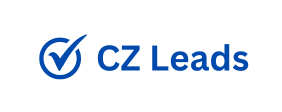Today, Magdalena and I will talk about a topic that has become overheated, namely how issues related to artificial intelligence and its creations are regulated – currently and perhaps in the near future.
What will it look like? How does the law keep up (or not keep up) with the development of technology? Hi Magdalena!
Magdalena Korol: Good morning Marcin, hello to everyone who is listening or will be listening. Thank you very much for the invitation. I will be happy to talk to you.
The development of artificial intelligence and the
Marcin Cichocki: Inspired by your very extensive and very precise blog entry, which perfectly describes the phenomenon of using artificial intelligence, and in fact the property copyrights to works created using artificial intelligence, I took the how to build telemarketing lead liberty of inviting you, Magda, to the Concise Podcast.
Let me first ask you a very general and very open question, namely – how has the introduction of artificial intelligence and its rapid development affected the current legal landscape? Are there any regulations already being created? Are lawyers running around law firms in panic and creating certain resolutions?
However, moving on to legal ground, this is undoubtedly a big challenge for us lawyers, because the law does not keep up with these جگہیں بنائیں جاپانی داخلہ ڈیزائن جمالیاتی کی طرف س regulations and we have to try to develop some idea, develop some solution, so as to efficiently advise clients who use these solutions. For example, marketing agencies that use artificial intelligence to create content,
broadly understood content for their clients
Intensive work is certainly already underway and is underway in the European Parliament. Something is supposed to appear this year. Such an artificial intelligence act. I wonder what it would look like, in what form it would take. Will it be a ao lists directive that member states will have to implement into their legal systems? Or will it be some kind of top-down regulation directly applicable. I am very curious. I am not a legislator, only a practitioner, but it is certainly a big challenge, especially in the area of copyright.
Magdalena Korol: I would distinguish between two situations. One situation is that, let’s say, we are a start-up and we are working on a solution concerning artificial intelligence. Then, in principle, we can sleep relatively peacefully, because such a start-up that develops an innovative solution based on artificial intelligence, usually creates a program that is subject to copyright protection as a computer program. And here we have no problem. We create something, of course we have to take care to protect all our rights, protect ourselves from copying, etc.


